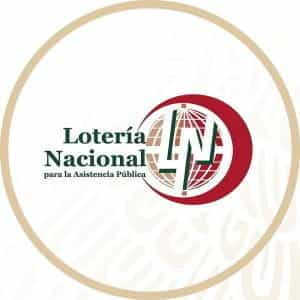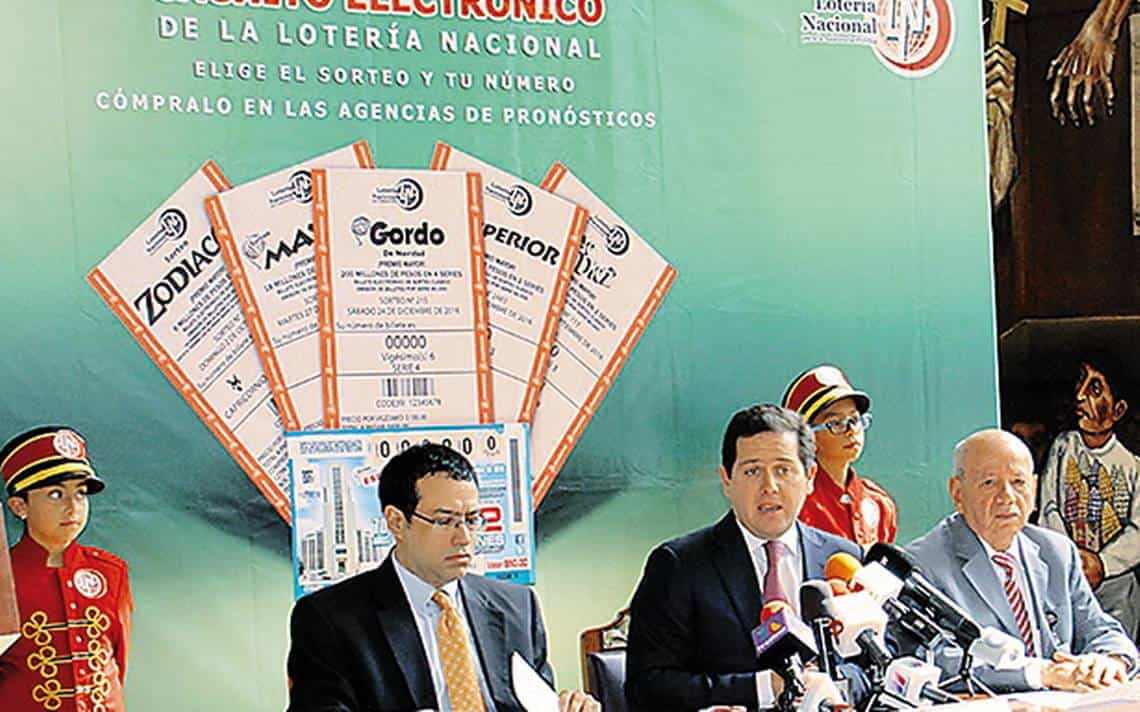Mexico Vote to Merge Major Lotteries
In a vote, officials in Mexico decided to combine the country’s two biggest lotteries. This merger, allegedly first proposed by President Obrador this past summer, will save Mexico’s aging national lottery, which has previously faced financial difficulties.
Not A Huge Surprise

Mexico’s LOTENAL has been officially in existence since 1940, but the legacy of lotteries in Mexico spans centuries. ©Lotería Nacional, youtube.com
President Andrés Manuel López Obrador first announced his idea to combine the two major lotteries in Mexico this past July, acknowledging this move would create the single-biggest lottery in the country.
At that time, Obrador said simply: “It’s a merger, that was agreed upon, to save operating expenses.”
When it came time to vote last week, the Plenary of the Chamber of Deputies in Mexico voted 392-1 to change Mexico’s existing lottery laws, thus combining the two lotteries.
Though a transitional administration will be put in place to begin moving over employees and resuming normal lottery activities for both organisations, the president of the Government and Population Commission in Mexico Rocío Barrera made sure to emphasize that the name of the national lottery will be maintained.
In addition to keeping its name, the new combined Mexico lottery will maintain the national lottery’s prior exclusive right to host nationwide lotteries.
Mexico’s National Lottery Had Been Struggling for Years
As recent coverage has shown, Mexico’s national lottery, also called La Lotería Nacional para la Asistencia Pública (LOTENAL) had been struggling for more than a decade.
The problems for LOTENAL first began in 2008, when a new tax was levied on the lottery (the Special Excise Tax on Production and Services, or IEPS). These taxes specifically target goods or activities which are perceived as having negative effects on the community or the larger environment. Other products subject to this tax are cigarettes, alcohol, and gas.
In 2015, the Chief Audit Office of Mexico confirmed that LOTENAL was at that time dependent on government aid and that LOTENAL was no longer financially able to continue making donations to charities.
From that time on, it was understood that LOTENAL was in a state of emergency, with some even going so far as to believe the national lottery should be discontinued entirely. This proposal, as we see now, was not popular with the government, who eagerly sought another solution.
By the time of this merger, LOTENAL had accrued a debt of 540 million pesos ($28.5 million) from 2008 to the present.
The More Modern Option: Pronósticos Offers A Solution
Pronósticos para la Asistencia Pública (or Pronósticos) had been established as LOTENAL’s rival. Having been more recently founded, Pronósticos offers a more technologically advanced internal sales network, but also boasts higher sales to consumers in Mexico.

Despite attempts to modernize, LOTENAL could not keep up with its more contemporary rival, Pronósticos. ©elsoldemexico.com.mx
Even before the merger, players turned to Pronósticos even to buy their tickets to the national lottery. These sales would generate income equivalent to $31.6 million annually.
The Lottery in Mexico: A Long History
While politician Rocío Barrera’s insistence that the name of the national lottery be maintained seems like just semantics, the lottery in Mexico actually comes from a long history — centuries long, in fact.
Mexico can proudly call itself home to the first-ever lottery in all of Latin America, an event created by King Charles III, Viceroy Marques de Crois, and Francisco Javier de Sarria when Mexico was still a colony of Spain.
With that influence in place, on August 7, 1770, the first lottery was held in Mexico: the “Real Lotería General de la Nueva España.” As early as the 18th century, these games were designed in large part to offer social services to the citizens, which has continued today.
The lottery continued to be very popular in Mexico, save for a five year hiatus from 1915-1920.
In 1920, the Lotería Nacional para la Beneficencia Pública re-emerged onto the scene, which then changed to the Lotería Nacional para la Asistencia Pública that remained from 1940 until the present.
LOTENAL had a long and storied history in Mexico, and over the years was known for its generous philanthropic contributions, particularly to the Castaneda mental hospital in Mexico City.
With this history in mind, it is no wonder officials in Mexico are taking the question of the national lottery name so seriously.
How Does The Lottery in Mexico Work?

Despite his fight to save LOTENAL, Mexico’s President Obrador has made clear he is not interested in growing a casino economy under his administration. ©reuters.com
The LOTENAL would offer regular draws several times a week, with Draw Mayor and the bigger jackpot, “Gordito”, draws on Wednesdays, and the “Superior Sweepstakes” every Friday. Other games include the “Mayan Prophecy Draw” on the last Sundays of the month, the “Magno Draw,” and the “Gordo Christmas Draw.”
In order to purchase a ticket for the Draw Mayor, one would pay 25 pesos. The odds to win are 1 in 3, and jackpots could be up to 300,000 pesos.
For the “Gordito,” the odds are slightly tougher — 1 in 4 — but tickets are cheaper, costing only 10 pesos to buy. But the win is much sweeter: jackpots for the “Gordito” could be up to 10 million pesos (around $523,900).
The hardest possible is the Superior Sweepstakes, which has odds of 1 in 5 to win, but the biggest prize could be up to 15 million pesos (around $785,700).
Once a month, the LOTENAL would also have Special Sweepstakes, with the biggest pot of all at 25 million pesos ($1.3 million).
The annual Gordo Christmas Draw offers the biggest jackpot of 150 million pesos (around $7.9 million).
Now that Pronósticos has control of the LOTENAL draws, the government agreement has decided that even during the transitional period when LOTENAL is acquired by Pronósticos, these regular lottery draws will continue uninterrupted. It is unclear if Pronósticos’s ownership of LOTENAL will alter these draws in the long-term, but the short-term will remain stable.
Despite This Decision, Obrador Is Not A Friend to Gaming
This is an interesting decision — though not surprising — for President Obrador, who recently also made public that he would not be approving any new casino licenses under his administration.
Since both the lottery and casinos engage in games of chance, one is inclined to ask: what’s the difference??
Here, one can consider longstanding public relationship LOTENAL has had to Mexico, particularly its extensive generous contributions to Mexico City, and its longstanding history in the nation overall.
By contrast, casinos in Mexico have been less popular, particularly with the Catholic Church, which has viewed casinos negatively since a devastating cartel attack killed 52 visitors at a casino in Monterrey, Nuevo León, Mexico, in 2011.
Lotteries Shifting Around Latin America
This news comes at an interesting time for lotteries in Latin America.
Brazil, another country in the region being eyed for its potential in the gaming market, has recently shifted its national lottery from being publicly owned by the national bank to being privately owned by a joint venture by two US-owned firms.
 Online Casinos UK
Online Casinos UK



